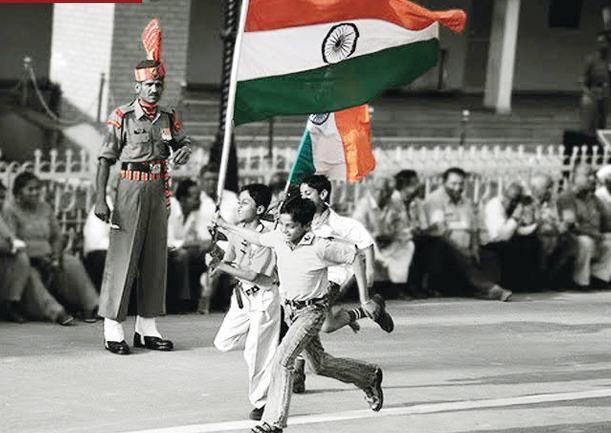The world’s first republic was born 2.5K years ago in Vaishali, India, during the Licchavi rule.
Recently, a news story regarding Kishore Kanyal — an IAS officer stationed in Shajapur, Madhya Pradesh — asking a trucker, kya aukaat hai tumhari? (What is your worth?) was widely circulated. This question was posed during a meeting with a transporters’ body.
The incident came to the attention of Madhya Pradesh chief minister Dr Mohan Yadav, who promptly relieved Kanyal of his duties as collector. When the media approached the driver
for his response, he simply stated, “The real question is, what is our worth?”
This incident reminded me of a similar situation at the Lokmat Maharashtrian of the Year Awards ceremony, where renowned actor Nana Patekar had questioned Maharashtra chief
minister Eknath Shinde and deputy chief minister Devendra Fadnavis thus: “Do we voters have any value?”.
This week, we are going to celebrate the 74th Republic Day and enter into the ‘Amrit Kaal’ of the 75th year of the Republic. In light of this, it is crucial to ponder over the true worth of the common man in our nation. However, before delving into this issue it is worth mentioning that India be stowed the gift of ‘republicanism’ upon the world. Some 2,500 years ago, the Licchavi kings of Vaishali established a republican system. Prime Minister
Narendra Modi also high lighted the Licchavi Republic during his address at the United Nations. Nevertheless, our current focus lies on the present era rather than delving into history.
Theoretically speaking, we the voters are omnipotent. We can elevate whoever we want to the pinnacle of power and remove those we deem unfit for power. This exercise of power is
particularly evident when we are fuelled by anger. We are fully aware of our capabilities, but the question often crops up during the five years between elections when the government operates according to its own agenda. What is the significance of the ordinary citizen in this system during that time? To quote Kanyal, “What is aukaat?” I have been fortunate enough to observe the workings of my country’s system from a three-dimensional per spective.
Besides being an ordinary voter, I am also a politician and a journalist, granting me extensive access to information. In addition to scrutinising the authority, I also delve into the workings of the system and meticulously analyse the role of the common man. Firstly,
let us discuss the group of individuals who, when casting their votes, prioritise the candidate’s caste, religion, and state of origin.
It is a matter of grave concern when religion, caste, and state take precedence over the national interest. Additionally, numerous voters succumb to the allure of immediate gains.
These voters disregard the question of whose victory would truly benefit the country or the state. Consequently, broken statues are often placed within the temple of democracy.
These tainted idols seamlessly infiltrate the system and manipulate it to their advantage. As a result, the welfare of the public becomes secondary, and the system deteriorates.
Undoubtedly, the primary objective of all government initiatives is to enhance the quality of life for the general public. However, when irregularities occur within the system, it is the
ordinary citizens who bear the brunt of the repercussions. Allow me to illustrate this with two specific instances. Although I have previously addressed this matter, I feel compelled to reiterate its significance as these incidents epitomise the system’s shortcomings.
While the government endeavours to provide free foodgrains to millions of individuals, how would you categorise the unfortunate death of a woman in Jharkhand due to starvation simply because she lacked a ration card and thus could not access free foodgrains? Had the first officer handling this matter displayed sensitivity, the tragic death could have been avoided in a nation moving towards prosperity. Additionally, it is crucial to recall the second incident where a person was denied an ambulance at a government hospital, resulting in
him carrying his deceased wife’s body on his shoulder back to the village.
In Melghat (Maharashtra), numerous children succumb to malnutrition and diseases annually. The extent of such tribal regions across the country and the potential consequences remain unknown. Furthermore, numerous similar incidents warrant attention. If individuals in influential positions such as Sarpanch, Zilla Parishad chairman, city corporation mayor, MLA, MP, or minister fail to fulfil their duties, it raises the question as to why our community does not collectively voice its concerns against them? Why is there a lack of empowerment within our community? It is important to acknowledge
that political parties play a significant role in maintaining the functionality of the
system, even more so than the government itself. If a doctor fails to attend the
medical centre in your village, shouldn’t you take a stand and protest against it?
If there happens to be a poor traffic situation in your city, shouldn’t you make an effort to adhere to the traffic regulations your self and encourage others to do the same? However, you think why get into trouble? Letting things be as they are may bring peace to your loved ones, but this notion of peace gradually under mines the entire system. Itreminds me of the immortal lines penned by Makhanlal Chaturvedi…
Hai, rashtra mandir mein jakar/tumne patthar kaa prabhu khoja/ lage mangne raksha aur svarn-rupe kaa boza? Main yah chala pattharon par chadh/ mera dil bar vahi milega/ phoonk jala de sona-chandi/ tabhi kranti kaa suman khilega.
Happy Republic Day in advance. Jai Hind!
The author is the chairman, Editorial Board of Lokmat Media and former member of Rajya Sabha.







